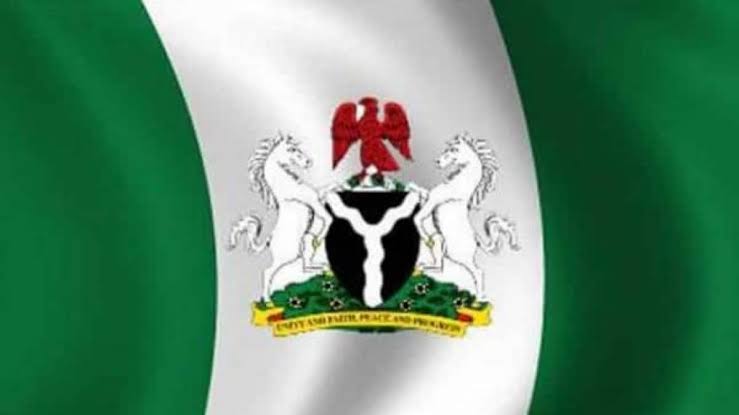AVIATION
FG still commitment to fossil fuel, despite energy transition, says petroleum minister

Coming against the backdrop of mounting pressures for countries to de-emphasize investments in the development of fossil fuels to to make way for the development of cleaner energy, otherwise christened, net zero, Timiprye Sylva, minister of state for petroleum resources on Tuesday reiterated that Nigeria cannot abandoned fossil fuel despite the energy transition regime.
Net zero refers to the efforts being made to achieve cutting greenhouse gas emissions to as close to zero as possible.
Speaking at the ongoing 2022 edition of
Nigerian Oil and Gas Conference and Exhibition NOG 2022 with the theme: ‘Funding the Nigerian Energy Mix for Sustainable Economic Growth’, in Abuja, the minister noted that fossil fuel will always have a share in Nigeria’s energy mix for the foreseeable future.
He maintained that the move was to promote gas usuage as alternative to petroleum products and to satisfy In-country demand for natural gas.
“For us in Nigeria, fossil fuel will always have a share in our energy mix for the foreseeable future, and we will not at this time abandon our fossil fuels. We have however, adopted our vast gas resources across the country as transition fuel.
“With a proven gas reserve of over 200 Trillion Cubic Feet (TCF), the right policies and regulations to expand the utilization of her gas resources, Nigeria has huge potentials to become an industrialized nation.
“It is very important to note that this shift to gas underscores President Muhammadu Buhari’s seriousness and determination in the development of Nigeria’s vast gas resources, not just as a major exporter but also as a major gas consuming nation” he said.
He assured that President Muhammadu Buhari will continue to strengthen the gas value chain as it is vital in transforming the economy of the country.
Sylva said that a lot is being done by the federal government to position gas as the alternative to fossil fuel stressing that Gas Expansion Programme (NGEP) is to boost utilization of natural gas.
“In January 2020, I inaugurated the National Gas Expansion Programme (NGEP) as a mechanism to boost utilization of natural gas in the short and medium-term”.
The objective of the NGEP is to promote gas as an alternative fuel source to petroleum products. This will also stimulate in-country demand for gas and thus increase domestic gas production and utilization. This is also part of the Federal Government’s bid to key into the global shift from crude oil to gas.
Under the NGEP, the Autogas was constituted as a subcommittee to drive the adoption of Autogas as an alternative fuel for Nigerians. This initiative comes at a very crucial time when the deregulation of petroleum products will cushion the effects of rising petrol costs, hence helping to prevent energy crisis.
Previous studies have presented Nigeria as an energy poor country. An estimated 62 percent of Nigerians lack access to electricity and 90 percent lack access to modern cooking fuels.
The minister disclosed that the federal government is working on many initiatives to tackle these challenges, one of which is the gas to power Initiative aimed at minimizing gas flaring and harnessing our gas resources to electricity to meet Nigeria’s electricity demands.
It is very worthy to note that the federal government is providing a lot of enablers, which are needed to realise the full potential of the gas sector.
This includes the development of critical infrastructures and systems such as the Obiafu-Obrikom-Oben (OB3) Gas Pipeline, the Ajaokuta-Kaduna-Kano (AKK) Gas Pipeline, the Nigerian Gas Transportation Network Code (NGTNC).
The Nigerian Gas Transportation Network Code (NGTNC) provides streamlined operational and fiscal terms for third-party use of gas distribution and transmission infrastructures.
The Petroleum Industry Act further provides new and attractive terms for participation in the Nigeria gas sector. These are supply-side enablers, which are capable of eliciting commercial interests and investments in gas utilisation.
“One of the most important provisions of the PIA for the gas sector is the establishment of the Midstream and Downstream Gas Infrastructure Fund, which shall have the power to make equity investments into relevant gas infrastructure projects and consequently encourage private sector investment through participation and risk sharing”. The minister noted.
Kelly Kelechukwu
-

 AVIATION5 years ago
AVIATION5 years agoPhoto News: Air Peace commence flight operations to South Africa
-

 Car News5 years ago
Car News5 years agoPolestar is recalls over 2000 electric cars due to software bug
-

 RAIL5 years ago
RAIL5 years ago36 Killed in Pakistan Train Accident
-

 Technology5 years ago
Technology5 years agoCommon mistakes in CO₂ emissions calculations
-

 Business5 years ago
Business5 years ago2016 Volvo XC60 review and specifications
-

 Reviews5 years ago
Reviews5 years ago2021 Audi A6 Specifications and Review
-

 SAFETY / CAR CARE5 years ago
SAFETY / CAR CARE5 years agoHandbrake warning light; what it means and what to do
-

 Reviews3 years ago
Reviews3 years agoDebutant Kia’s new K8 sedan benchmarks luxury, safety
